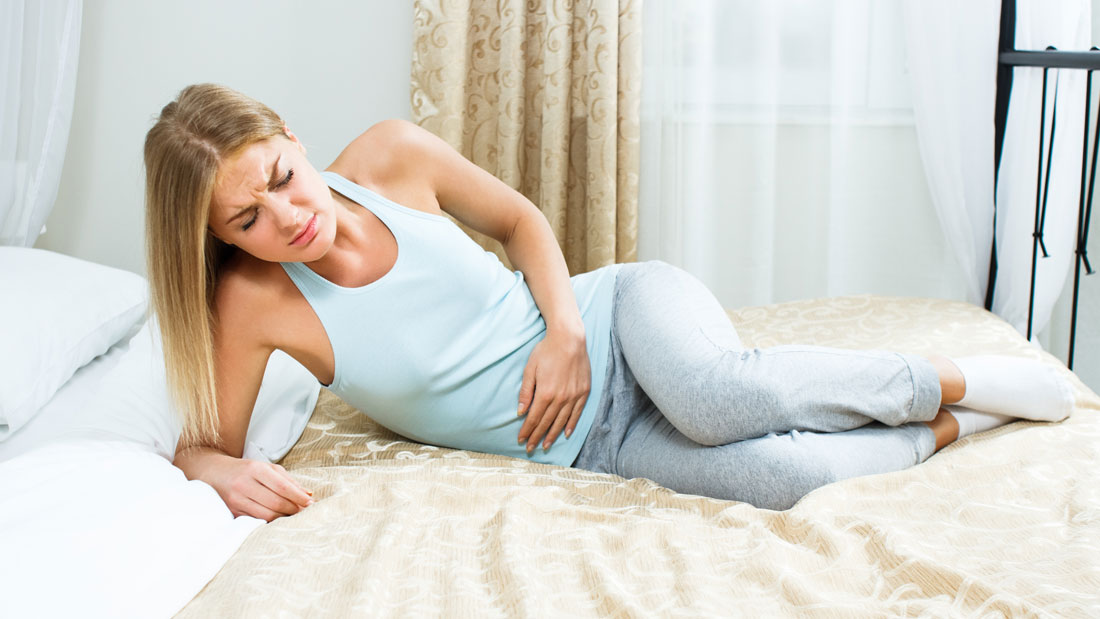
Premenstrual syndrome, also referred to as premenstrual tension or PMS, is the emotional, physical and behavioral symptoms associated with the menstrual cycle. In accordance with the World Health Organization (WHO), over 250 million women suffer the pain of PMS at least throughout their menstrual period.
Causes and Signs of PMS
PMS usually starts after ovulation and might are 1 week or longer in many women.?A number of the common factors behind PMS are the following:
#div-gpt-ad-1525702346961-4
margin: 10px 25px 10px 0px;
#div-gpt-ad-1525702502842-1
margin: 10px 25px 10px 0px;
- Hormone cycling: In the luteal phase, progesterone levels are high and estrogen is usually low, causing many of the indications of PMS.
- Serotonin:?Serotonin gives neurotransmitter and a fluctuation in?its levels can lead to the growth of PMS. A lesser level of serotonin?is associated to depression, dizziness, fatigue and problems with sleep.
- Depression:?Severe depression may be connected to many PMS incidents.
Women with PMS often experience symptoms depending on their menstrual cycle. These symptoms?may just be severe and frequently subside in a week or two.?Consistent symptoms are usually witnessed in some ladies and the problem is known as premenstrual dysphoric disorder (PMDD).
Behavioral warning signs of PMS include:
#div-gpt-ad-1525702346961-5
margin: 10px 25px 10px 0px;
#div-gpt-ad-1525702502842-2
margin: 10px 25px 10px 0px;
- Lack of concentration
- Long spells of unnecessary crying
- Anxiety and depression
- Insomnia
- Alteration in eating habits
- Extreme mood swings
- Increased anger
Physical indications of PMS include:
- Bloating
- Headaches
- Muscle pain and joint stiffness
- Constipation
- Acne
- Tenderness and swelling within the breasts
- Heart palpitations
Treatment Strategies?for?PMS
Various treatment strategies are obtainable according to the severity of the signs and symptoms. An array of common strategies are:
#div-gpt-ad-1525702502842-3
margin: 10px 25px 10px 0px;
- Diuretics: Drugs like?Aldactone?are best performing in managing putting on weight, inflammation and bloating.
- Antidepressants: Selective serotonin reuptake inhibitors (SSRIs)?like sertraline, fluoxetine and paroxetine?are?prescribed to women with severe moodiness and depression.
- Contraceptives:?Various contraceptives can be found that could reduce and sometimes inhibit ovulation yet are rarely utilized in managing PMS they do not provide any reduced the symptoms.
Alternative control of PMS include:
- Lemon Balm:?It?could help lessen the symptoms associated with insomnia issues, depression and anxiety.
- Chromium:?A consumption of chromium?could regulate insulin and glucose levels, keeping craving for food in hand.
- Vitamins and minerals:?A mixture of vitamin B6, calcium and magnesium may elevate mood and lower PMS symptoms effectively.
Complications Related to PMS?
Apart from swift changes in moods, bloating and pain, PMS could also worsen other difficulties that your woman are affected from, including:
#div-gpt-ad-1525702502842-4
margin: 10px 25px 10px 0px;
- Asthma:?Asthma attacks usually increase while in the luteal phase.
- Migraines:?Migraines are?one that is commonly observed complications of PMS and the frequency and length of an episode can increase while doing this phase.
PMS is normally seen as an adjustments in mood and behavior through the luteal phase of any woman’s menstrual cycle. These symptoms subside alone as being the cycle continues, nevertheless, you can alleviate its symptoms and provide back some normalcy to your routine with rest, medications and 100 % natural ingredients.
References
Gillings MR. Have there been evolutionary good things about pms or premenstrual syndrome? Evol Appl. 2014 Sep;7(8):897-904.
Studd J. Hormone therapy for reproductive depression girls. Post Reprod Health. 2014 Dec;20(4):132-7.
Chung SH, Kim TH, Lee HH, et al. Premenstrual syndrome and premenstrual dysphoric disorder in perimenopausal women. J Menopausal Med. 2014 Aug;20(2):69-74.
Abraham S, Luscombe G, Soo I. Oral contraception and cyclic changes in premenstrual and menstrual experiences. J Psychosom Obstet Gynaecol. 2003 Sep;24(3):185-93.
Bianco V, Cestari AM, Casati D, et al. Pms or premenstrual syndrome and beyond: lifestyle, nutrition, as well as facts. Minerva Ginecol. 2014 Aug;66(4):365-75.
Helmerhorst FM, Lopez LM, Kaptein AA. Premenstrual syndrome. Lancet. 2008 Aug 9;372(9637):446; author reply 446-7.
Coffee AL, Kuehl TJ, Sulak PJ. Comparison of scales for evaluating premenstrual symptoms in females using oral contraceptives. Pharmacotherapy. 2008 May;28(5):576-83.
